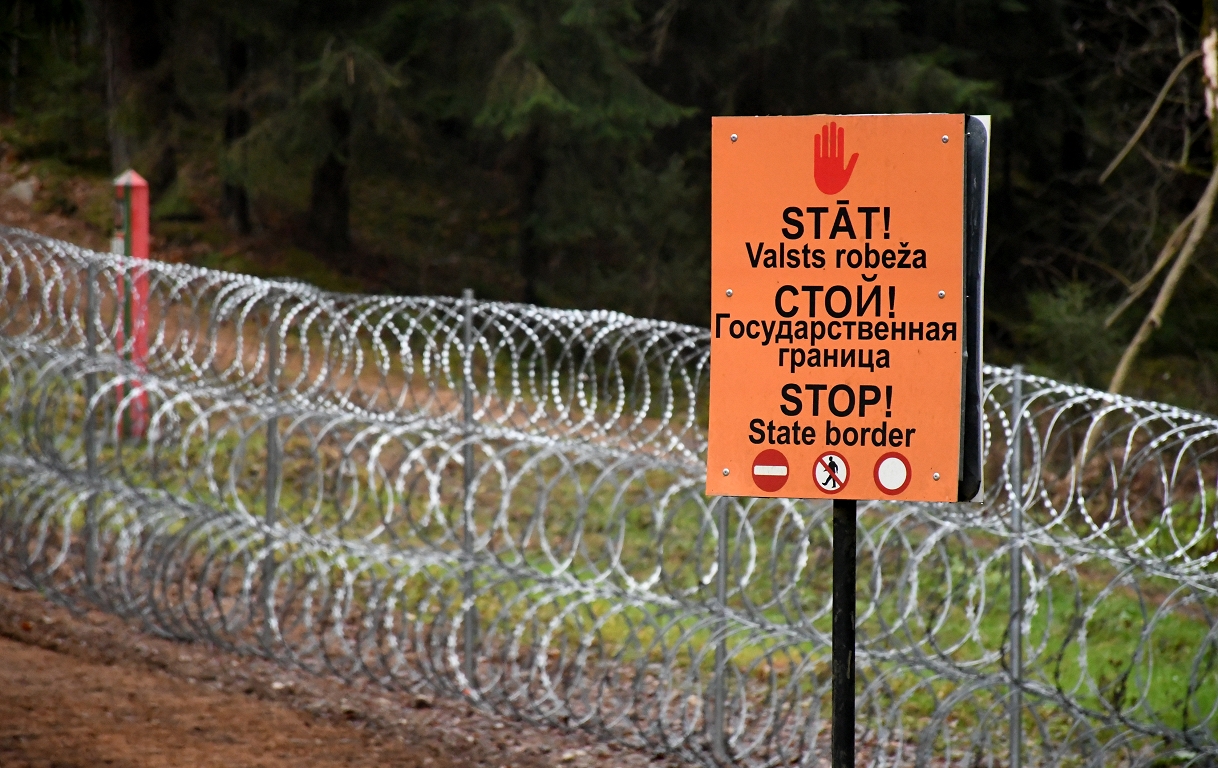Merz wants to continue border controls, although his coalition is divided
/s3/static.nrc.nl/images/gn4/stripped/data133208054-975c80.jpg|https://images.nrc.nl/GHKHgLEB0W5fVUOPtg2NZvMgjzk=/1920x/filters:no_upscale()/s3/static.nrc.nl/images/gn4/stripped/data133208054-975c80.jpg|https://images.nrc.nl/pxkuHkDnn5uSdAlgcVDOTWOI5sg=/5760x/filters:no_upscale()/s3/static.nrc.nl/images/gn4/stripped/data133208054-975c80.jpg)
A Berlin judge ruled that it is illegal, yet the government of Chancellor Friedrich Merz (CDU) continues: people who want to apply for asylum in Germany can be refused at the border. The verdict on the migration policy puts the four -week -old coalition of CDU/CSU and SPD directly under pressure.
Monday The administrative court in Berlin that three Somalis, who were arrested on the Oder in Frankfurt at the beginning of May and were then sent back to Poland, should be able to apply for asylum in Germany. According to the judge, Germany is not obliged to take the three, but must conduct a so-called Dublin investigation before deciding. That investigation must show in which European country the three arrived first and where they can therefore apply for asylum.
The German Minister of the Interior Alexander Dobrindt (CSU) states that the European asylum agreements are « dysfunctional » and that Germany therefore applies national law. European law can be suspended in the event of a state of emergency: according to Dobrindt there is such a state of emergency because German municipalities are ‘overloaded’. This is noticeable by « Crèches and Schools and on the housing market, » said Dobrindt on Tuesday at Omroep Ard.
The judge finds the substantiation of Dobrindt for that state of emergency – for that there should be a « danger to public order ». In Germany, the number of asylum applications in 2024 fell by around 30 percent compared to 2023.
It is not easy to convince the judge that these pushbacks are lawful
Dobrindt, supported by Chancellor Merz, adopted the judgment from Berlin for notification and does not intend to adjust the policy. « In the case of these three people, the judge ruled so much, » said Dobrindt. For the two men and one woman from Somalia, we look at where they can apply for asylum according to Dublin agreements. Furthermore, the German police continue to refuse asylum recipients at the border – with the exception of the sick, minors and pregnant women.
Dobrindt and Merz want to substantiate better why there is a state of emergency and European law can therefore be suspended. Whether that is so easy can be seen. Officials of Dobrindts Ministry warned the minister before his regulation that he would not stand in court. Dobindt’s colleague, Minister of Justice Stefanie Hubig (SPD), also stated on Tuesday that « it is not easy to convince the judge that these pushbacks are lawful. »
Photo Filip Singer/EPA
Break or bend
Does the Merz government break laws, or does it only bend them? The opinion of the political commentators in Berlin varies. According to journalist Ulrike Hermann from the Tageszeitung Is the route of Merz and Dobrindt ‘precisely that of Trump’ – namely not concerned about the law, and acting with the knowledge that something is illegal to subsequently await long legal procedures.
At the ARD, Hermann also pointed out that Dobrindt as Minister of Transport (2013-2017) wanted to take toll for all non-German passenger cars under Chancellor Angela Merkel (CDU)-a plan that could not be recovered with European agreements, and that Germany eventually only cost a lot of money.
The Frankfurter Allgemeine Zeitung judged precisely That « an administrative court (in Berlin) does not determine the government policy, » and headed above the comment that the « government must keep course. »
Even within the coalition, the interpretations of the judgment are not any: SPD party leader Matthias Miersch believes that the border policy should be adjusted, and is supported by a large part of his group. CDU and CSU follow the line of Merz and Dobrindt.
Groenen-Bundestag member Irene Mihalic called the verdict a « warning so that the government adheres to the law in the future and does not knowingly and with a populist objective of its own competencies. »
The populists see an opportunity in the verdict. According to party leader Alice Weidel of the radical-right alternative für Deutschland, the judicial opinion shows that the ‘right to asylum’ must be abolished and that her party ‘will quickly abolish this entire theater’. Her party colleague René Springer wrote on X that « German security cannot be restored without a political conflict with the judiciary, » and that only the AfD will enter into that conflict.
If we as a government do nothing, the populists will win
Election promise
As a CDU party leader, Friedrich Merz campaigned with a hard migration policy. His election promise of ‘dense limits’ seemed not compatible with European law, but with such hard texts, Merz attempted to attract voters from the AfD. The ignorance of the judicial judgment by Merz may be fuel for the AfD, which is involved in democratic institutions.
Dobrind thinks that he makes it harder for the populists: « If we as a government do not see possibilities to make immigration arranged better, only see obstacles and therefore do nothing, then the populists win. Then citizens have the feeling that politics has nothing to decide anymore – and I see the greatest danger. »

:format(webp)/s3/static.nrc.nl/images/gn4/stripped/data133172100-71d860.jpg)
/s3/static.nrc.nl/wp-content/uploads/2025/06/05202057/data133276626-c661f0.jpg)
:format(webp)/s3/static.nrc.nl/wp-content/uploads/2025/05/20145430/data132556290-a10486.jpg)




